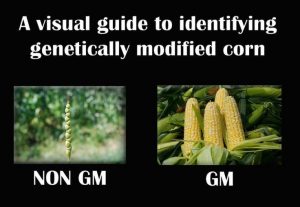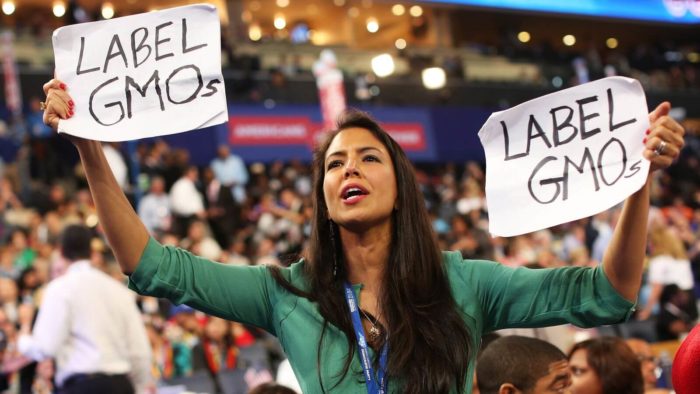Nov
13
2014
The “Food Babe” is an excellent object lesson in why people who are not qualified should not be dispensing advice to the public. Spouting uninformed opinions is one thing, but presenting information in an authoritative manner as if from an expert should not be attempted by the non-expert.
If you want to dispense useful information on your blog or website (not just opinion) then it is appropriate to cite credible sources and experts and to accurately convey their information. “These are the facts concerning flu vaccines, according to the CDC,” then quote the CDC directly, with a link to the source.
Unfortunately the web is cluttered with people who really have no idea what they are talking about giving advice as if it were authoritative, and often that advice is colored by either an ideological agenda or a commercial interest. The Food Babe is now the poster child for this phenomenon.
She recently published advice for healthy traveling. The page has since been deleted, apparently in response to criticism, but it is cached here. The FB’s advice contains some real howlers, demonstrating that she lacks even the most basic scientific literacy.
Continue Reading »
Dec
04
2018
 Many people are complaining that CNN, in reporting on the recent E. coli outbreak on romaine lettuce, had The Food Babe (Vani Hari) on as a food “expert.” This, of course, is a complete journalistic failure on the part of CNN. The Food Babe is a famously scientifically illiterate alarmist whose career is based on peddling misinformation. My favorite example is when she completely misunderstood the nature of pressure in airline cabins, and complained that the air was tainted with up to 50% nitrogen.
Many people are complaining that CNN, in reporting on the recent E. coli outbreak on romaine lettuce, had The Food Babe (Vani Hari) on as a food “expert.” This, of course, is a complete journalistic failure on the part of CNN. The Food Babe is a famously scientifically illiterate alarmist whose career is based on peddling misinformation. My favorite example is when she completely misunderstood the nature of pressure in airline cabins, and complained that the air was tainted with up to 50% nitrogen.
As important as this complete scientific failure, was her response. She did not transparently correct the misinformation and apologize. She simply deleted the post.
Hari has come under extensive criticism for spouting her nonsense and fearmongering. She is perhaps most famous for her “yoga mat” stunt, completely misunderstanding the fact that chemicals can be used for a variety of reasons, and that does not make them dangerous.
Her general response to criticism is to (in addition to hiding) go on the attack. She does not appear to be an honest broker of information, but rather a self-promoter who will attack her critics. She also likes to ban critics from her own page. So when the internet complained to CNN that the Food Babe was not an appropriate person to have on their program to be presented as an expert, Hari did what she does – she went on the attack.
Her tactic this time is to blame the whole affair on “astroturfing.” This is a real phenomenon in which an industry, company, cult, or ideological group will create the impression of a grassroots campaign using front organizations and paid agents. However, this isn’t the whole story.
Continue Reading »
Aug
04
2016
 Facebook, despite its critics and many competitors, remains a robust social media platform. The SGU has a Facebook page with over 1 million likes, and we use it to drive traffic here and to Science-Based Medicine.
Facebook, despite its critics and many competitors, remains a robust social media platform. The SGU has a Facebook page with over 1 million likes, and we use it to drive traffic here and to Science-Based Medicine.
There are pages on Facebook promoting just about any point of view you can imagine. It is a true marketplace of ideas. Like any marketplace, there is the expectation that its rules are fair and its regulation is rational and reasonable.
Earlier this year Facebook came under criticism when it was discovered that some of their employees may have been systematically biased against conservative leaning news items. This sparked a discussion of whether or not an outlet like Facebook has a responsibility to be neutral. They are a private company, they can do what they want. Newspapers and TV news programs can have a biased editorial policy. What is important is transparency, and Facebook was putting their thumb on the scale on the sly. They have responded by initiating a training program for their employees to teach them to recognize their own bias – so they at least understand the benefit of the perception of being unbiased.
Continue Reading »
Jun
14
2016
 Scientific skeptics spend a great deal of their time and effort fighting against pseudoscience, ideology, and entrenched beliefs. This can be a frustrating effort, given that such beliefs tend not to be based in scientific thinking in the first place. It can be so frustrating that Marc Crislip chose as the symbol for the Society for Science-Based Medicine an image of Sisyphys endlessly pushing a rock up hill.
Scientific skeptics spend a great deal of their time and effort fighting against pseudoscience, ideology, and entrenched beliefs. This can be a frustrating effort, given that such beliefs tend not to be based in scientific thinking in the first place. It can be so frustrating that Marc Crislip chose as the symbol for the Society for Science-Based Medicine an image of Sisyphys endlessly pushing a rock up hill.
I do think we are having a significant impact on culture, the media, and the bigger conversation on scientific issues, but it is hard to measure, and sometimes even perceive, that impact. The noise of pseudoscience can seem overwhelming. We are mostly left to imagine that the situation would be much worse without our efforts and take comfort in small victories.
This is why I took notice of a recent article by Risk-Monger that claims we have changed the dynamic with respect to public opinion about genetically modified organisms (GMOs). He makes an interesting case that there has been a “Surprisingly Sudden Demise of the Anti-GMO Movement.” Here is his summary of the evidence: Continue Reading »
Nov
23
2015
 One of the pillars of alternative medicine propaganda is historical revisionism. Proponents often claim that they were ahead of the curve on diet and exercise advice, while the medical establishment lagged behind. They go as far as to take credit for the entire field of nutrition by labeling it “alternative.”
One of the pillars of alternative medicine propaganda is historical revisionism. Proponents often claim that they were ahead of the curve on diet and exercise advice, while the medical establishment lagged behind. They go as far as to take credit for the entire field of nutrition by labeling it “alternative.”
The fact is, the disparity between mainstream and alternative advice has not changed much for the past 60+ years. There are even some elements that are literally centuries old – using “natural” as a marketing angle, for example.
The alternative narrative is not based on reality, however. Fortunately we have records from the first half of the 20th century that document exactly what the scientific mainstream and alternative culture were saying. It is a good idea to frequently question your own narrative and check the actual facts. I sought to find some historical documents that would demonstrate what the medical mainstream were saying in the 1950s.
Continue Reading »
Oct
26
2015
 For as long as there has been anything synthetic, apparently, people have been enamored of the idea of “natural.” “Natural” has what is called a health halo, or a sense of wholesomeness, while anything artificial or chemical is presented as automatically harmful.
For as long as there has been anything synthetic, apparently, people have been enamored of the idea of “natural.” “Natural” has what is called a health halo, or a sense of wholesomeness, while anything artificial or chemical is presented as automatically harmful.
When you scratch even a little below the surface, this idea makes no scientific sense. Nature is full of horrible toxins, many of which evolved specifically to be toxic. Nature does not seem to care particularly about one rather egocentric species on Earth, and there is no reason to think that it should. The degree to which something is natural vs synthetic says absolutely nothing about its health effects, but being natural is meant to feel good.
With the advent of social media is has become easier than ever for self-styled gurus and “experts” to market themselves, and many have hit upon the marketing allure of “natural” as a hook. The Food Babe and Natural News immediately come to mind. They have taken rank pseudoscience and wrapped it in a thin veneer of “natural” marketing hype.
As is often the case, however, the famous examples of any phenomenon are usually just the tip of a large pyramid, with many more individuals struggling in relative anonymity. Further, I have often thought that if you want to, for example, figure out how a standard magic trick is performed, don’t watch the famous experts. They are too good. Watch the hacks. They are much more likely to give the trick away.
Continue Reading »
Sep
11
2015
 I have long held that one of the best ways to gauge the intellectual integrity of an individual or a group is to note how they deal with bad information or a bad argument that seems to support their position. You get points for rejecting an unsound argument or unreliable data even when it could be used to defend your side.
I have long held that one of the best ways to gauge the intellectual integrity of an individual or a group is to note how they deal with bad information or a bad argument that seems to support their position. You get points for rejecting an unsound argument or unreliable data even when it could be used to defend your side.
The flip side of this is acknowledging valid points that are on the other side of the argument. I will sometimes present what I feel is a rock-solid point for one side to an opponent, just to see how they will deal with it.
Of course it is far easier to point such behavior out in others, more difficult to police it in yourself. This is why constant reminders to value process, integrity, and fairness over any particular position is critical to skeptical inquiry.
Further, there is a range of bad responses to invalid points that can be exploited to support your position. In extreme cases ideologues will take the bad argument as total vindication. They will do a virtual victory dance, spike their fact in the end-zone, and turn up their self-righteousness to 11. Then you know you are dealing with someone with effectively zero intellectual integrity.
Continue Reading »
Feb
28
2014
The “yoga mat chemical” (azodicarbonamide) is the latest food-based fearmongering, thanks to an unscientific petition by the self-described “food babe,” who apparently feels that she is qualified because she is a computer scientist. (Well, it has the word “science” in it.)
Unfortunately, the “yoga mat chemical” is an effective meme. Who wants to eat something that can be found in a yoga mat? Many journalists, such as Lindsay Abrams, have bought into the meme without any critical analysis. Abrams helpfully provides a list to her readers of “500 more foods containing the yoga mat chemical.”
Here are some other foods her readers might also want to reconsider:
This popular health food can also be found in industrial lubricants, solvents, cleaners, paints, inks adhesives and hydraulic fluid. It is burned as fuel. It is also used to make foam found in, “coolers, refrigerators, automotive interiors and even footwear.” It is used to make carpet backing and insulation.
But the worst part is – it is also used to make yoga mats.
Continue Reading »
Feb
14
2014
This is the worst example of pseudoscientific fearmongering I have seen in a while, and that’s saying something.
Vani Hari, a blogger known as “food babe,” has started a petition to get Subway to remove use of the chemical azodicarbonamide from their breads. She writes:
Azodicarbonamide is the same chemical used to make yoga mats, shoe soles, and other rubbery objects. It’s not supposed to be food or even eaten for that matter. And it’s definitely not “fresh”.
This, of course, is utter nonsense – that is, the notion that because a chemical has multiple uses, included in non-food items, that it is not “supposed” to be eaten. Azodicarbonamide (ADA) is used as a blowing agent in the formation of certain rubbers and sealants. It is used, for example, in sealing the tops of baby food containers, but also in the production of certain plastics and rubbers. It is also used as a bleaching agent for bread, giving it a softer and fluffier quality. None of this says anything about it’s safety at the levels used.
Continue Reading »
Jan
15
2019
 I have written extensively about GMOs (gentically modified organisms) here, and even dedicated a chapter of my book to the topic, because it is the subject about which the difference between public opinion and the opinion of scientists is greatest (51%). I think it’s clear that this disparity is due to a deliberate propaganda campaign largely funded by the organic lobby with collaboration from extreme environmental groups, like Greenpeace.
I have written extensively about GMOs (gentically modified organisms) here, and even dedicated a chapter of my book to the topic, because it is the subject about which the difference between public opinion and the opinion of scientists is greatest (51%). I think it’s clear that this disparity is due to a deliberate propaganda campaign largely funded by the organic lobby with collaboration from extreme environmental groups, like Greenpeace.
This has produced an extreme, if not a unique, challenge for science communicators. Also – there are direct implications for this, as the political fight over GMO regulation and acceptance is well underway. The stakes are also high as we are facing challenges feeding a growing population while we are already using too much land and there really isn’t more we can press into agriculture. (Even if there are other ways to reduce our land use, that does not mean we should oppose a safe and effective technology that can further reduce it.)
A new study published in Nature may shed further light on the GMO controversy. The authors explore the relationship between knowledge about genetics and attitudes toward GMOs.
In a nationally representative sample of US adults, we find that as extremity of opposition to and concern about genetically modified foods increases, objective knowledge about science and genetics decreases, but perceived understanding of genetically modified foods increases. Extreme opponents know the least, but think they know the most.
Continue Reading »

 Many
Many Facebook, despite its critics and many competitors, remains a robust social media platform.
Facebook, despite its critics and many competitors, remains a robust social media platform.  Scientific skeptics spend a great deal of their time and effort fighting against pseudoscience, ideology, and entrenched beliefs. This can be a frustrating effort, given that such beliefs tend not to be based in scientific thinking in the first place. It can be so frustrating that Marc Crislip chose as the symbol for the
Scientific skeptics spend a great deal of their time and effort fighting against pseudoscience, ideology, and entrenched beliefs. This can be a frustrating effort, given that such beliefs tend not to be based in scientific thinking in the first place. It can be so frustrating that Marc Crislip chose as the symbol for the 


 I have written
I have written 




